How to Grow Organic Herbs at Home: The Ultimate Guide
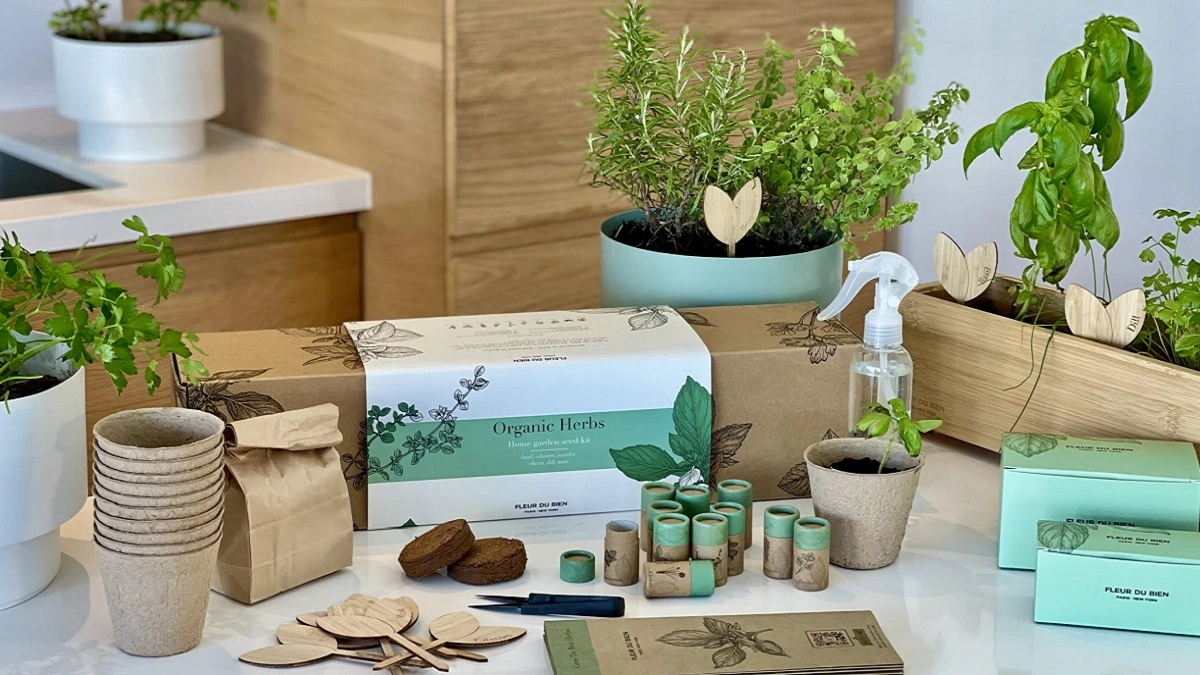
After reading this ultimate blog, you should have a clear idea of how to grow organic herbs at home, indoors, all year round.
The benefits of growing plants indoors are endless. Consider them for convenience, economy, and freshness because they are free of chemicals and can improve the taste of cooking and the kitchen. In this blog, we’ll give you our top seven tips to avoid common mistakes and enjoy your indoor herb garden all year round, whether it’s from seed or potted plants.
Careful Selection of Organic Herbs
Not all types of plants are suitable for growing indoors. So choose only those that are best suited for growing indoors.
- Basil, chives, parsley, oregano, rosemary, and thyme are ideal.
- For higher success, start with several types first.
- Read and follow the care instructions for specific conditions on the plant label.
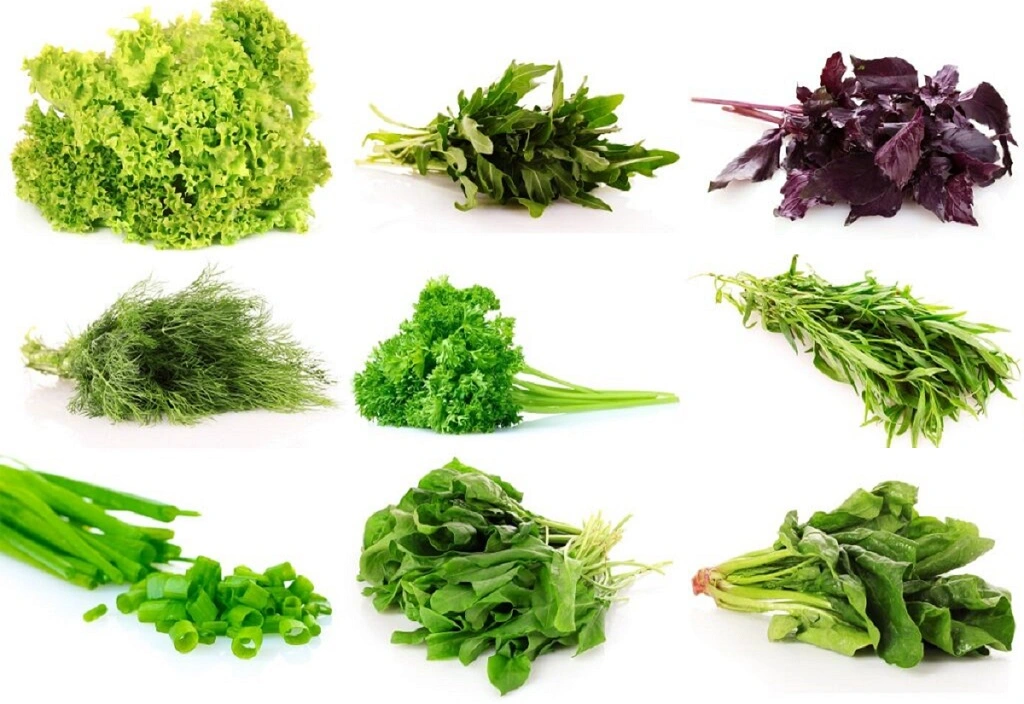
Which pots to buy?
Choosing a pot is just as important as choosing a plant.
- Choose a pot with enough drainage holes to prevent waterlogging and root rot.
- Water the plants by soaking the soil and letting the excess water drain completely.
- Consider porous and breathable terra-cotta pots to avoid moisture accumulation and possible root problems. Avoid glazed plastic or ceramic pots, which can hold excess moisture.
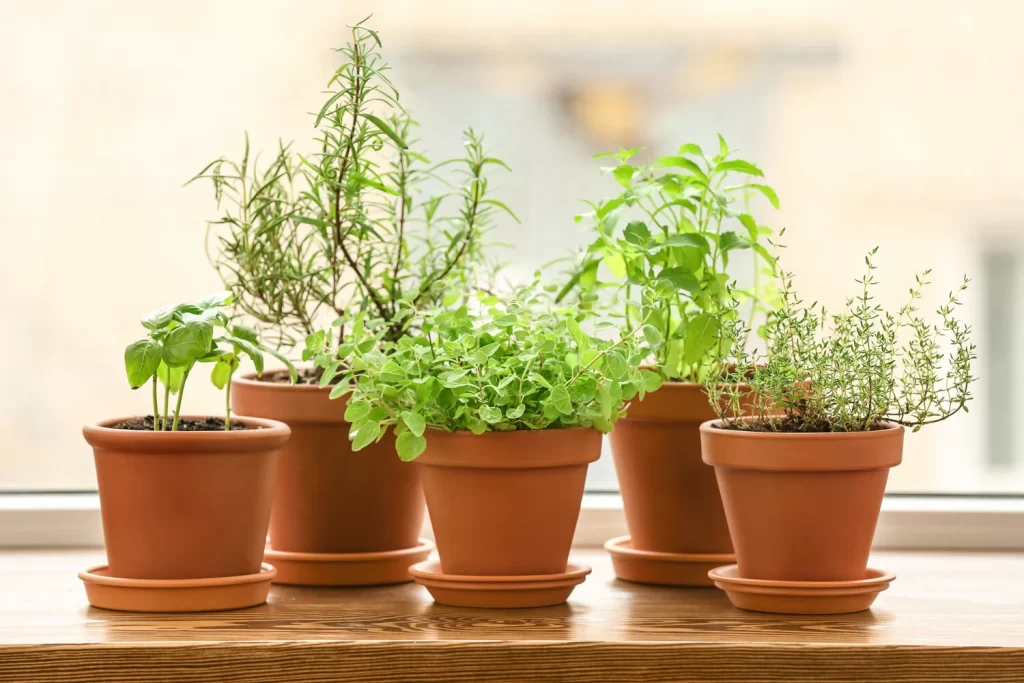
Watering Not Too Often
Overwatering is bad and also not good for your herbs, and it can derail your efforts to grow organic plants in your home.
- Plants usually require watering once or twice a week, but this can vary depending on the type of plant and the temperature.
- Oregano, rosemary, sage, and thyme need less watering, while basil, cilantro, mint, and parsley need more frequent watering.
- Check soil moisture by sticking your finger into the soil; if it’s dry, you need water; if it’s wet, wait two days.
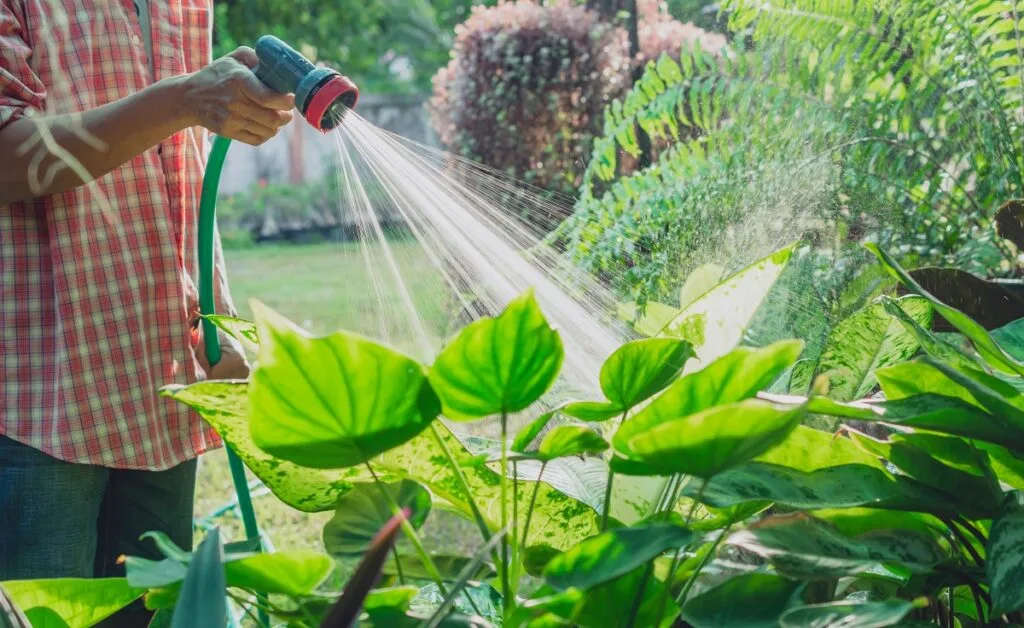
Sunlight is Very Good for Organic Herbs
All life forms need sunlight to survive and thrive, and houseplants are no different.
- Most plants need at least six hours of sunlight each day, preferably in a south-facing window.
- East- or west-facing windows provide partial shade, while north-facing windows offer shade for shade-loving plants.
- If your kitchen lacks natural light, consider using overhead lights.
- Turn your plants a quarter of an hour once a week to ensure sunlight and encourage growth.
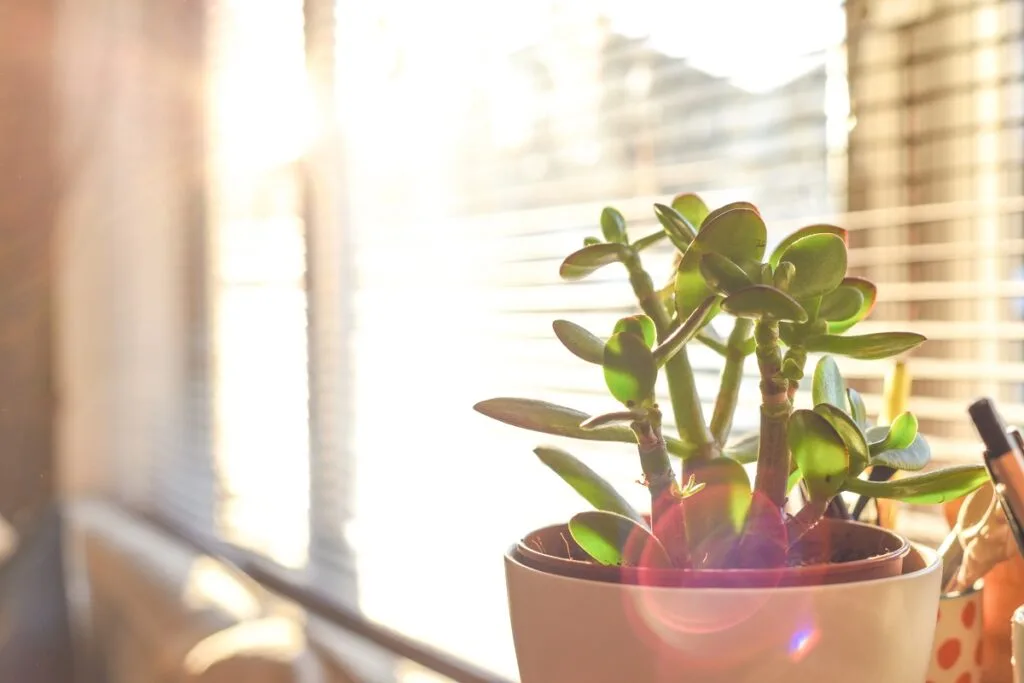
Right Temperature Is the Key
In addition to the right amount of sunlight, the right temperature is also important. Both are compatible.
- The plant grows best between 18 and 24 °C.
- In the colder months, prevent plant leaves from touching windows to prevent frost damage.
- Some plants, such as basil, are sensitive to cold temperatures and cannot survive below 10°C.
- Store sensitive plants in a warm area around 21°C to ensure safety.
- Protect your indoor herb garden from cold drafts from windows or doors in the winter.
Away from AC and Heater
Artificial air is bad for your indoor garden and also organic herbs.
- Keep indoor plants away from artificial air sources such as fans, heaters, radiators, and air conditioners.
- Dry heat and cold temperatures can cause plants to wilt or dry out, depriving them of the moisture they need to thrive.
- To maintain optimal conditions for plants, keep the greenhouse away from extreme temperature sources.

Pruning of Organic Herbs
This is also excellent for the health and growth of organic herbs.
- Pruning is essential for herbs to encourage new growth and improve air circulation.
- For sprawling plants like shrubs, pruning keeps them neat and orderly.
- To prevent waterlogging and disease, use pruning shears to cut diagonally above the leaf nodes on organic plants such as thyme or parsley.
- For leafy plants like basil or cilantro, remove the tip above the leaf tip.
- It should be cut mainly in the spring or after flowering, but intermittent cutting ensures new grass throughout the year.
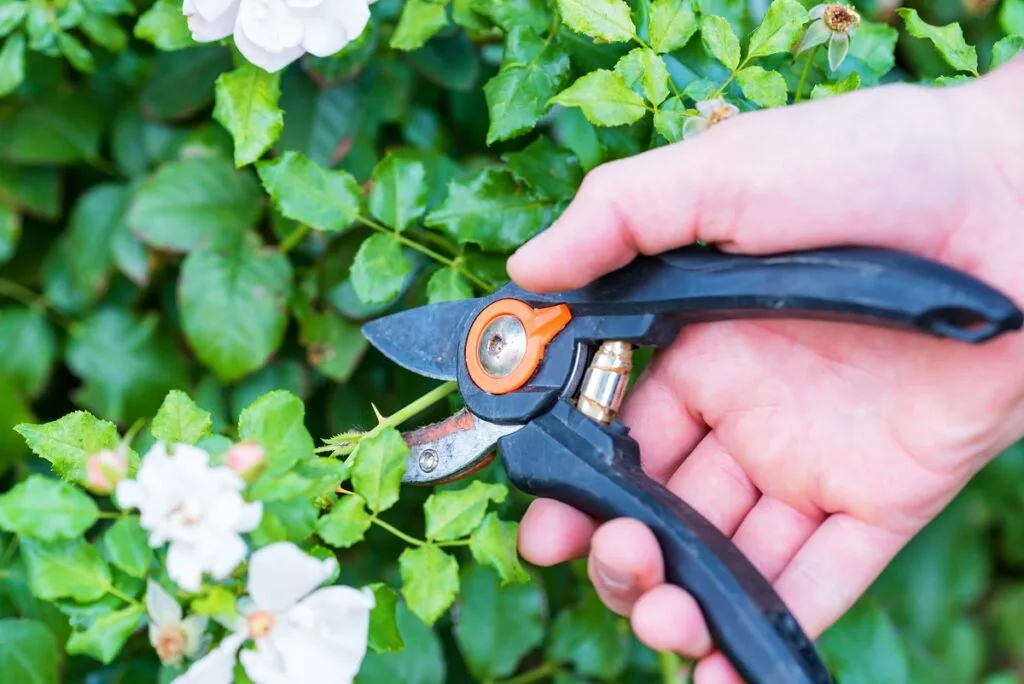
Also check: When to Plant Tulips | How to Plant Tulips | Try Now!
So, here are 7 important tips to help you grow organic herbs at home all year round. We hope you find this guide useful. If you also have any tips of your own, please leave them in the comments section.
Also check: Buy & Sell on Top Classifieds Pakistan Totally Free Now!
